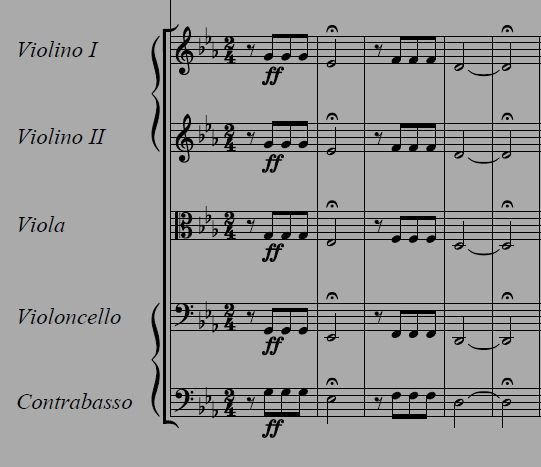
Schindler in his autobiography relates that van Beethoven intended these bars to be played very slowly. The allegro con brio should start only following the second fermata he contended.
But Weingartner Liszt and Mendelssohn all strongly disagreed, and insisted that everything should be taken allegro (not surprising in the case of Mendelssohn since he liked his music bland).
Weingartner, in relation only to the pauses, describes their effect as "terrific, gigantic, powerful, menacing, overwhelming and volcanic - it is like a giant's fist rising from the earth." On the other hand, he writes "Is there even a moderately satisfactory explanation why van Beethoven, instead of specifying so extremely important a change of tempo, should have marked the passage allegro con brio when what he wanted was andante?"
But I stand with Schindler upon this question. I feel that four knocks coming out of the blue would be most "terrific, gigantic, powerful, menacing, overwhelming and volcanic" - to say nothing of thunderous - if there were at least half a second between them.
Besides, a good many symphonies of the period were preceded by a slow introduction; it is a traditional thing. Might not van Beethoven have considered the slow tempo in this case to be self-evident? It is much more than just the postman isn't it.
What do members think?





Comment